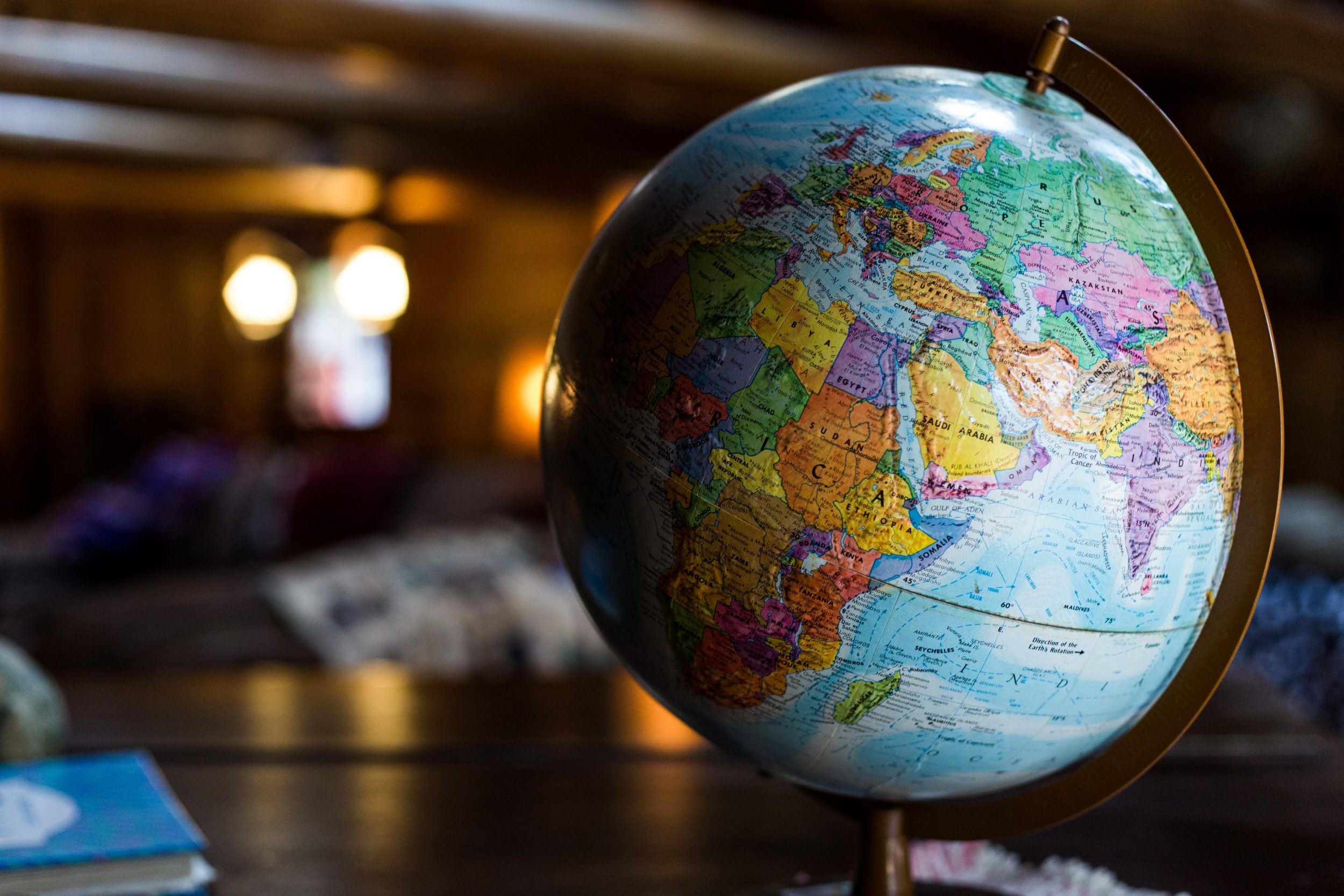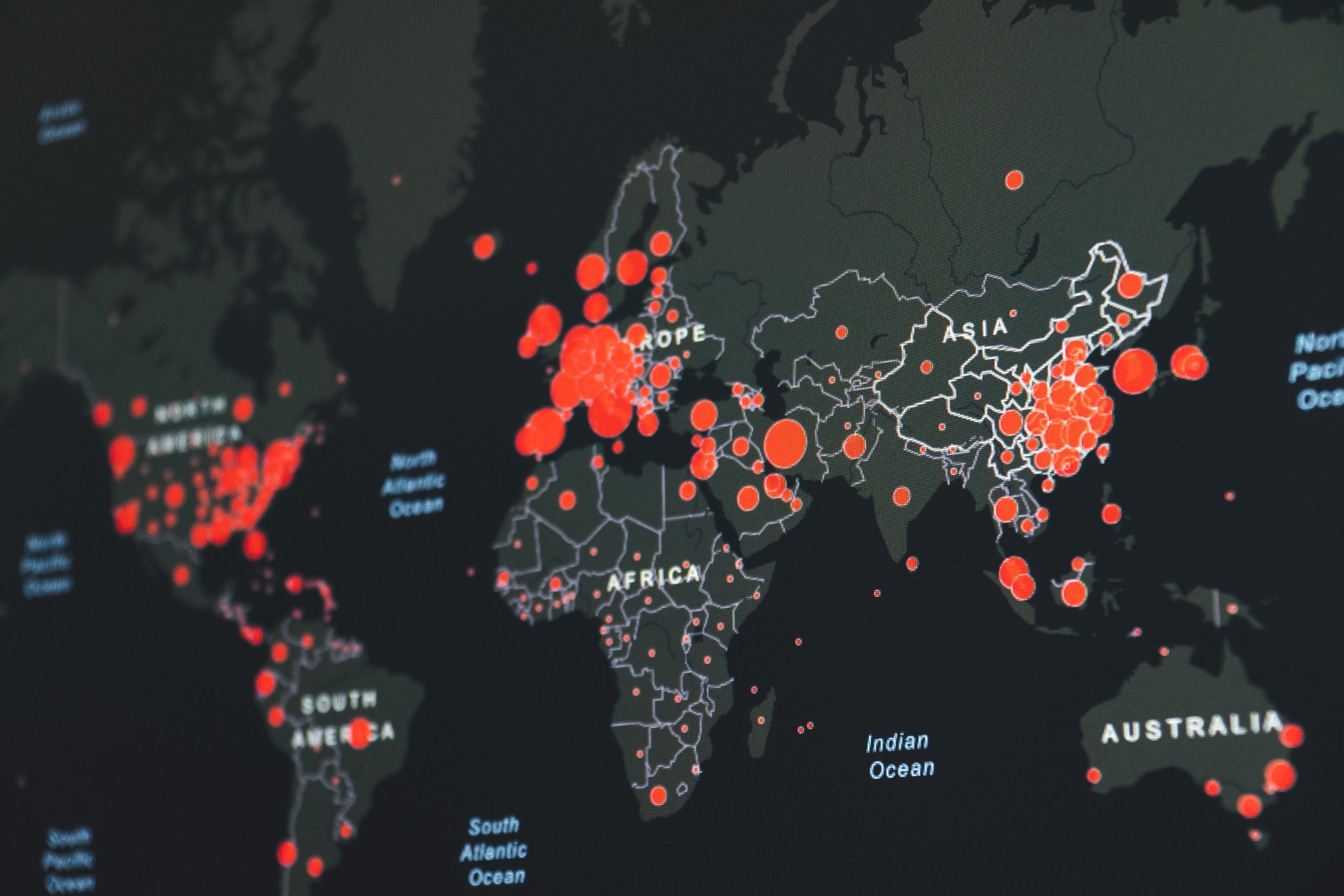 LSE’s Lee Edwards reflects on the ways that media coverage of George Floyd’s murder and the subsequent protests is in danger of perpetuating racism and white privilege.
LSE’s Lee Edwards reflects on the ways that media coverage of George Floyd’s murder and the subsequent protests is in danger of perpetuating racism and white privilege.
The murder of George Floyd in Minneapolis one week ago was both horrific and predictable. News coverage has followed the pattern of horror, outcry, support, and a gradual movement away from the topic of a racist killing towards coverage of civilian protests and violent clashes with the state. One week on, we are seeing an evolution of the story – of a struggle between state, institutions and citizens, for justice and against systemic, institutionalised racism.
But there are difficulties with this shift in focus that mean we should continue to question the coverage and ask what exactly is being communicated, and what is obscured, even as we are caught up in the spectacle.
Firstly, too often the coverage situates the victims of racism on one side of a battleground: a locus of instability, aggression, and fear. It makes visible their anger and frustration, without speaking to the consistent, interminable pain that racism deals out on a daily basis. The advent of police batons, barricades and curfews conflates victimhood with uncivilized threat. The thousands upon thousands of times that anti-racist community leaders have spoken out, argued, engaged, encouraged, resisted, transformed and succeeded in creating change, peacefully and based on unequivocal logic, become forgotten in the drama of one of the world’s most powerful nations becoming terrifyingly reminiscent of a failed state.
In other words, the news media’s focus on the immediate, while purporting to report the truth, unwittingly or wittingly perpetuates the racist myth that people of colour are too emotional to speak for themselves, too angry to be civilised, and too dangerous to live with peacefully. It deprives them of voice and thus, paradoxically, plays into the systemic racism on which it (sometimes) reports.
Secondly, the coverage enables us to forget the death of George Floyd, and turn our eyes and minds away from the horror of this murder and why it happened. What is it that allows systemic racism to exist and even flourish when, in our ‘post-race’ societies, racism is nominally illegal?
White privilege is a crucial factor here, but it is too often obscured in media accounts of racism. I write as a white, middle-class, educated woman. Being able to look away from George Floyd and become seduced by the spectacle perpetuates my white privilege, because it allows me to forget what that privilege means on a day to day basis. It is too easy, watching burning buildings and police brutality, to stop asking myself why a white man felt he had the right to make decisions about the ultimate removal of voice and life. To avoid questions that demand my deepest attention: ‘Why is it that I am safe while George Floyd was not?’
In 1988, Professor Peggy McIntosh wrote a checklist that reveals the scale of white privilege, which is still relevant today (see below). It affects every part of our lives. It is mundane. It is predictable. It is the ability to represent grease, rather than grit, moving smoothly through the world. It is the ability to make people feel comfortable, the knowledge I am approved of, the ability to see myself in the world around me. It tells me I belong. It is the reason why I am safe while George Floyd was not and why in the UK, I am safer than people of colour who live next door to me, in my street, in my city.
White privilege is a root cause of microaggressions that construct the ‘other’ on a day to day basis, the ‘drip, drip’ of a leaking tap that continuously, inexorably inflicts the pain of racism. If racism is to be overcome then it needs to be dismantled. Calling it out is everyone’s job, but the media and the communications industries play a special role here because of their power to represent the world to us.
However, across the communications industries, whiteness continues to dominate. Practitioners are mostly white, their narratives divide ‘us’ from the ‘other, and present racism as something that affects ‘others’ but not ‘us’. Representational faux pas reveal the racism within the industry that assumes whiteness is the norm. This translates into work that perpetuates the invisibility of white privilege, because those who report on the world in which it dominates, cannot see it.
The importance of white privilege is not to be underestimated in discussions of racism, even though it is often overlooked. It represents the umbilical cord that links the racism that others suffer to our own lives. Racism is not a problem that the white, privileged among us, don’t have to deal with. It is fundamental to the position we enjoy. Rather than being incidental to George Floyd’s murder, white privilege facilitated that horrific event. And yet, it receives little mention and even less analysis in the media.
If we accept white privilege without challenging it, we are complicit in silencing victims of racism, because we refuse to recognise their attempts to explain to us why the world is not as we see it, and why it needs to change. The protestors’ calls of ‘I can’t breathe’ are not only a factual repetition of the last words of George Floyd, Eric Garner and others whose names have been lost in the white-penned, institutional narratives of history and present. They are also a metaphor for what it is like to live in a world deprived of voice, of the ability to speak our own narratives and be recognised and valued as citizens. They are a direct challenge to the white privilege that means I can flourish, while others suffocate. It is time to listen.
This article represents the views of the author and not the position of the Media@LSE blog, nor of the London School of Economics and Political Science.
White privilege
From ‘WHITE PRIVILEGE AND MALE PRIVILEGE: A Personal Account of Coming to See Correspondences Through Work in Women’s Studies (1988), by Peggy McIntosh
Available at: https://www.racialequitytools.org/resourcefiles/mcintosh.pdf
- I can if I wish arrange to be in the company of people of my race most of the time.
- I can avoid spending time with people whom I was trained to mistrust and who have learned to mistrust my kind or me.
- If I should need to move, I can be pretty sure of renting or purchasing housing in an area which I can afford and in which I would want to live.
- I can be pretty sure that my neighbors in such a location will be neutral or pleasant to me.
- I can go shopping alone most of the time, pretty well assured that I will not be followed or harassed.
- I can turn on the television or open to the front page of the paper and see people of my race widely represented.
- When I am told about our national heritage or about “civilization,” I am shown that people of my color made it what it is.
- I can be sure that my children will be given curricular materials that testify to the existence of their race.
- If I want to, I can be pretty sure of finding a publisher for this piece on white privilege.
- I can be pretty sure of having my voice heard in a group in which I am the only member of my race.
- I can be casual about whether or not to listen to another person’s voice in a group in which s/he is the only member of his/her race.
- I can go into a music shop and count on finding the music of my race represented, into a supermarket and find the staple foods which fit with my cultural traditions, into a hairdresser’s shop and find someone who can cut my hair.
- Whether I use checks, credit cards or cash, I can count on my skin color not to work against the appearance of financial reliability.
- I can arrange to protect my children most of the time from people who might not like them.
- I do not have to educate my children to be aware of systemic racism for their own daily physical protection.
- I can be pretty sure that my children’s teachers and employers will tolerate them if they fit school and workplace norms; my chief worries about them do not concern others’ attitudes toward their race.
- I can talk with my mouth full and not have people put this down to my color.
- I can swear, or dress in second hand clothes, or not answer letters, without having people attribute these choices to the bad morals, the poverty or the illiteracy of my race.
- I can speak in public to a powerful male group without putting my race on trial.
- I can do well in a challenging situation without being called a credit to my race.
- I am never asked to speak for all the people of my racial group.
- I can remain oblivious of the language and customs of persons of color who constitute the world’s majority without feeling in my culture any penalty for such oblivion.
- I can criticize our government and talk about how much I fear its policies and behavior without being seen as a cultural outsider.
- I can be pretty sure that if I ask to talk to the “person in charge”, I will be facing a person of my race.
- If a traffic cop pulls me over or if the IRS audits my tax return, I can be sure I haven’t been singled out because of my race.
- I can easily buy posters, post-cards, picture books, greeting cards, dolls, toys and children’s magazines featuring people of my race.
- I can go home from most meetings of organizations I belong to feeling somewhat tied in, rather than isolated, out-of-place, outnumbered, unheard, held at a distance or feared.
- I can be pretty sure that an argument with a colleague of another race is more likely to jeopardize her/his chances for advancement than to jeopardize mine.
- I can be pretty sure that if I argue for the promotion of a person of another race, or a program centering on race, this is not likely to cost me heavily within my present setting, even if my colleagues disagree with me.
- If I declare there is a racial issue at hand, or there isn’t a racial issue at hand, my race will lend me more credibility for either position than a person of color will have.
- I can choose to ignore developments in minority writing and minority activist programs, or disparage them, or learn from them, but in any case, I can find ways to be more or less protected from negative consequences of any of these choices.
- My culture gives me little fear about ignoring the perspectives and powers of people of other races.
- I am not made acutely aware that my shape, bearing or body odor will be taken as a reflection on my race.
- I can worry about racism without being seen as self-interested or self-seeking.
- I can take a job with an affirmative action employer without having my co-workers on the job suspect that I got it because of my race.
- If my day, week or year is going badly, I need not ask of each negative episode or situation whether it had racial overtones.
- I can be pretty sure of finding people who would be willing to talk with me and advise me about my next steps, professionally.
- I can think over many options, social, political, imaginative or professional, without asking whether a person of my race would be accepted or allowed to do what I want to do.
- I can be late to a meeting without having the lateness reflect on my race.
- I can choose public accommodation without fearing that people of my race cannot get in or will be mistreated in the places I have chosen.
- I can be sure that if I need legal or medical help, my race will not work against me.
- I can arrange my activities so that I will never have to experience feelings of rejection owing to my race.
- If I have low credibility as a leader I can be sure that my race is not the problem.
- I can easily find academic courses and institutions which give attention only to people of my race.
- I can expect figurative language and imagery in all of the arts to testify to experiences of my race.
- I can choose blemish cover or bandages in “flesh” color and have them more or less match my skin.
- I can travel alone or with my spouse without expecting embarrassment or hostility in those who deal with us.
- I have no difficulty finding neighborhoods where people approve of our household.
- My children are given texts and classes which implicitly support our kind of family unit and do not turn them against my choice of domestic partnership.
- I will feel welcomed and “normal” in the usual walks of public life, institutional and social.





